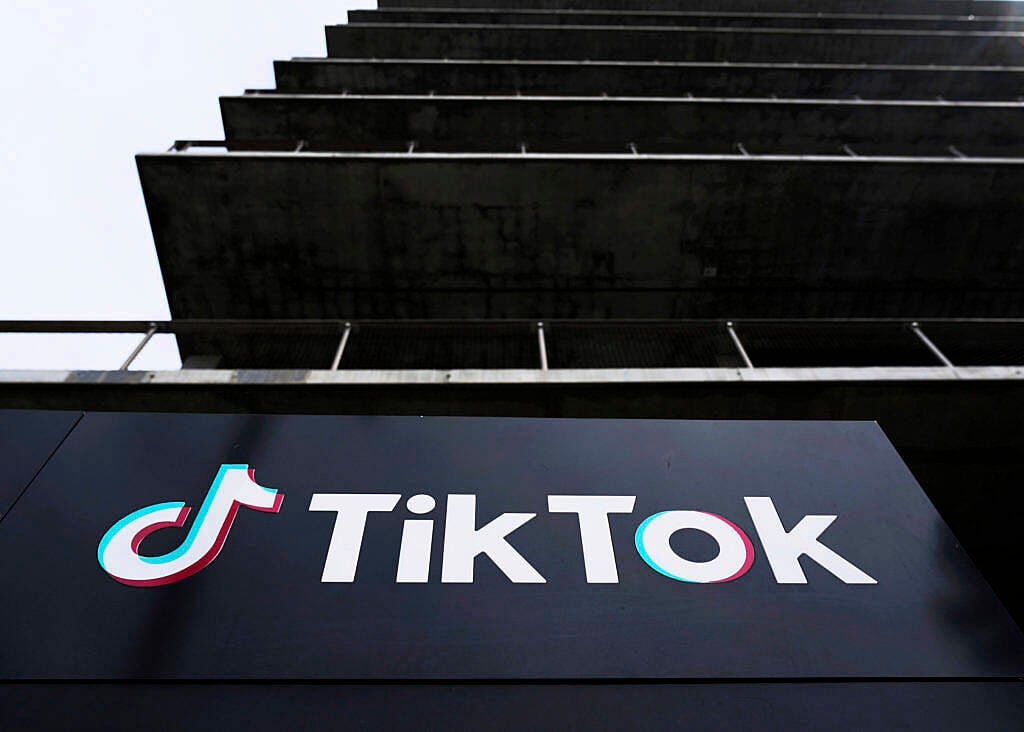Tech giant Oracle will spearhead U.S. oversight of the algorithm and security underlying TikTok’s popular video platform under the terms of a deal laid out on Monday by President Donald Trump’s administration.
All the final details still need to be agreed upon among several joint venture partners, including Oracle, investment firm Silver Lake Partners, and possibly two billionaires: media mogul Rupert Murdoch and personal computer pioneer Michael Dell. The U.S. administration would not have a stake in the joint venture nor be part of its board, according to a senior White House official.
Mr. Trump is expected to issue an executive order later this week declaring that the terms of the deal meet the security concerns laid out by the law, the senior White House official said. However, China still needs to sign off on the framework proposal, and any final deal would require regulatory approval.
The proposal aims to resolve a long-running effort to wrest TikTok’s U.S. operations from its Beijing-based parent company, ByteDance, due to national security concerns. TikTok has become a high-profile topic during conversations between Mr. Trump and China’s President Xi Jinping amid their ongoing trade war, which has significantly impacted the global economy over the past year.
For now, the two sides are progressing on a framework deal that calls for a consortium of investors—including Oracle and Silver Lake—to take over TikTok’s U.S. operations. This process might not be completed until early next year, according to the timeline laid out by the Trump administration.
This timeline could mean TikTok’s divestment might not be completed until a year after it was supposed to be banned under a law that had bipartisan support but was repeatedly bypassed by Mr. Trump.
Under the current proposal, the new U.S. joint venture would receive a licensed copy of the recommendation algorithm that keeps TikTok users endlessly scrolling through clips on their smartphones. Oracle would review, monitor, and secure U.S. data flowing through the service.
“It wouldn’t be in compliance if the algorithm is Chinese. There can’t be any shared algorithm with ByteDance,” said a spokesperson for the U.S. House Select Committee on China.
American officials have previously warned that ByteDance’s algorithm is vulnerable to manipulation by Chinese authorities, who could use it to shape content on the platform in a way that is difficult to detect.
The algorithm has been a central issue in the security debate over TikTok. China previously maintained that the algorithm must remain under Chinese control by law. But a U.S. regulation passed with bipartisan support stated that any divestment of TikTok must sever specific ties—especially the algorithm—with ByteDance.
Although details remain sketchy, a Trump administration official said the licensed copy will be retrained with U.S. data to ensure the system behaves appropriately. This makes it unclear if the U.S. version of TikTok will look different from what users see in the rest of the world.
Any noticeable changes made to a social media platform’s service raise the risk of alienating its audience, said Jasmine Enberg, an analyst for the research firm eMarketer. “Social media is just as much about the culture as it is the technology, and how users will take to new ownership and potentially a new version of the app is still an open question,” Ms. Enberg said.
In a Monday briefing, White House press secretary Karoline Leavitt said the change in control will not affect user experience. TikTok users in the U.S. will still be able to see videos posted by users in other countries, and vice versa, Ms. Leavitt said.
In a prime example of how a change of control can reshape a once-popular social media platform, billionaire Elon Musk triggered an almost immediate backlash after his $44 billion takeover of Twitter nearly three years ago. However, Mr. Musk made extremely visible changes, including eventually dropping the Twitter brand and renaming it “X.”
The changes that gradually occur while different data is fed into the U.S. copy of TikTok’s algorithm could be subtle and unnoticeable to most of its audience.
What is clear for now is that both Oracle and Silver Lake will be major players in TikTok’s future in the U.S. if the deal is finalized by the Trump administration.
Founded nearly 50 years ago, Oracle’s success was built on database software that helps manage a wide variety of information crucial to business. The company has since expanded into hardware, including data centers that help power artificial intelligence.
Although he no longer serves as Oracle’s CEO, company co-founder Larry Ellison remains a top executive. Mr. Ellison, 81, could become a behind-the-scenes power player in the media, having already helped finance Skydance’s recently completed $8 billion merger with Paramount—a deal engineered by his son, David.
Silver Lake has long focused on tech deals, including past buyouts of Dell Computer and the now-defunct video calling service Skype. Michael Dell, who founded Dell Computer, may now be one of the investors in the U.S. joint venture overseeing TikTok, according to what Mr. Trump told Fox News in a recent interview.
Mr. Trump also mentioned Mr. Murdoch, whose company owns Fox News, as a potential investor in the joint venture. Other media outlets have reported that another billionaire, venture capitalist Marc Andreessen, is vying to become involved in the investor group. Mr. Andreessen was also involved in Silver Lake’s 2009 buyout of Skype.
ByteDance is expected to have a 20% or smaller stake in the U.S. joint venture, whose board will be controlled by the U.S. investors. ByteDance will be represented by one person on the board, but that individual will be excluded from TikTok’s security committee.
https://www.breakingnews.ie/world/tiktoks-algorithm-to-be-licensed-to-us-joint-venture-1809811.html

